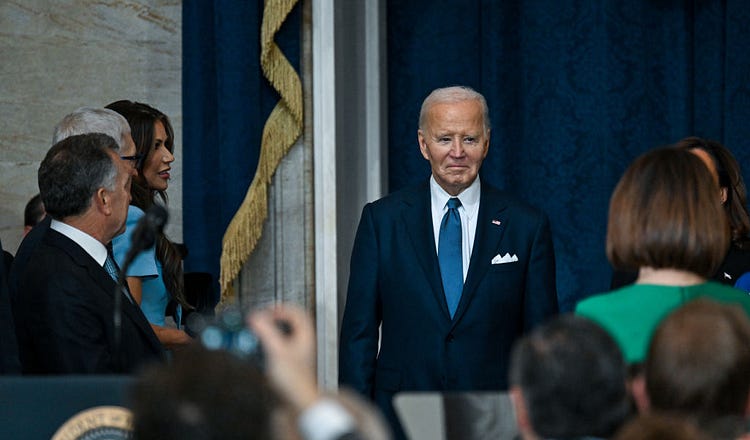
One of the first promises Donald Trump made in his inaugural address was to restore the integrity of a justice system he believes was manipulated against him by his political opponents. “The scales of justice will be rebalanced,” he said. “The vicious, violent, and unfair weaponization of the Justice Department of our government will end.”
When Trump said this on the campaign trail, it sounded like a partisan gripe to the roughly half of the country that loathed him. But on Monday, the man Trump just replaced in the White House unintentionally but undeniably lent credence to his point.
With minutes left in his presidency, Joe Biden pardoned five more members of his family. (He had pardoned his son, Hunter, in December.) A few hours earlier, Biden pardoned a slate of some of his successor’s most high-profile opponents, including members and staff of the House January 6 committee as well as longtime government health and science bureaucrat Anthony Fauci and Mark Milley, former chairman of the Joint Chiefs of Staff. These pardons cover all potential federal crimes dating back to January 1, 2014.
In short, Biden issued sweeping acts of preemptive clemency for his allies and family—before they were even indicted, let alone convicted. The closest any American president had ever come to doing that was Gerald Ford’s pardon of his predecessor, Richard Nixon, after his August 1974 resignation. At the time, Nixon was still a target of the Watergate special counsel.

